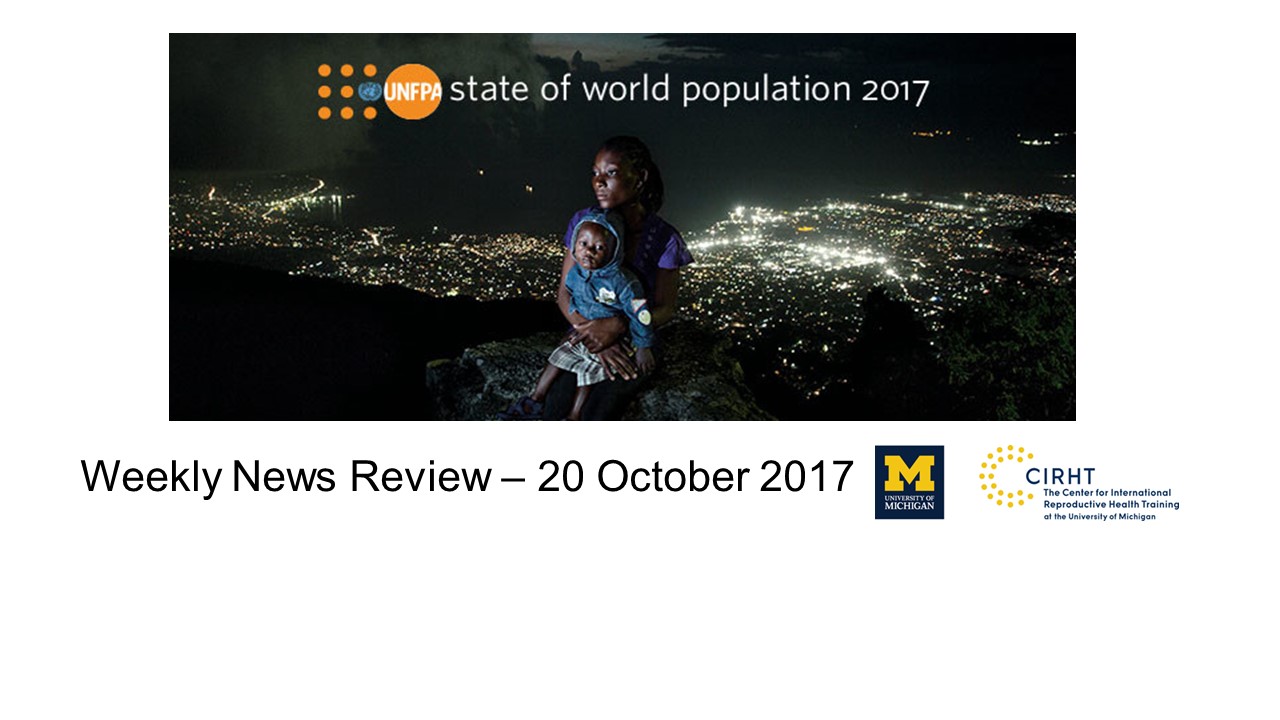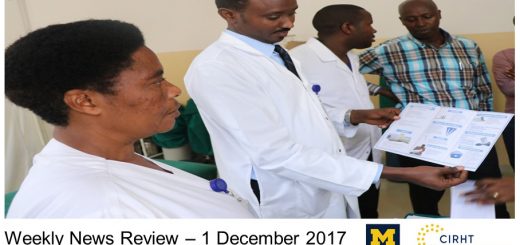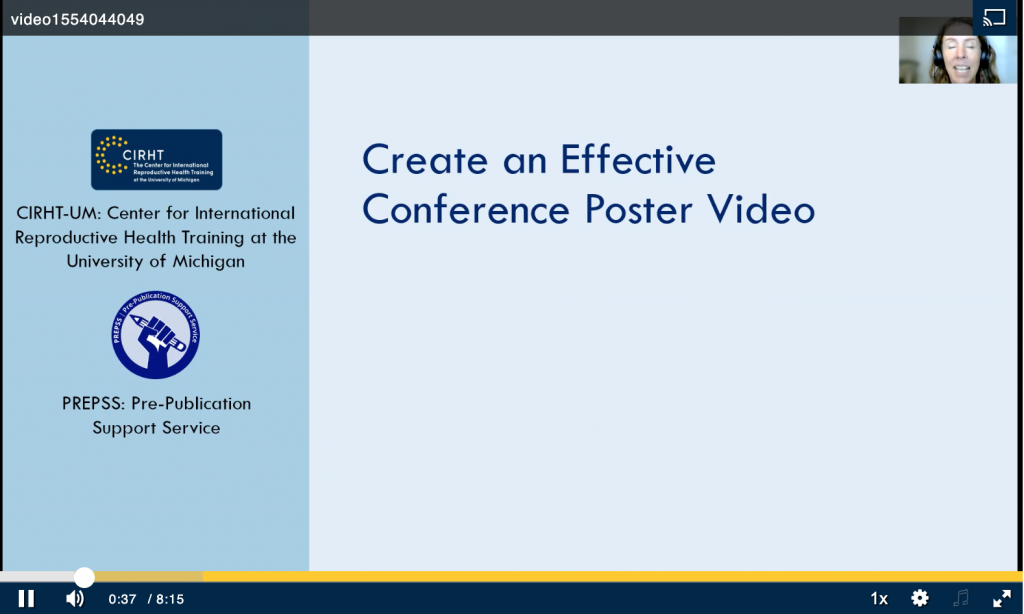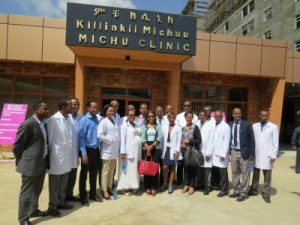News Review – 20 October 2017

Worlds apart: Reproductive health and rights in an age of inequality
The comprehensive UNFPA State of World Population 2017 report has detailed information about how gender inequality, and specifically denial of reproductive rights, “threatens social stability” and “development”.
UNFPA’s executive director Natalia Kanem summed it up this way: “Inequality today is not only about the haves and have nots … (it) is increasingly about the cans and cannots… Poor women who lack the means to make their own decisions about family size or who are in poor health because of inadequate reproductive health care dominate the ranks of the cannots”
Another article noted, “Last year, the McKinsey Global Institute calculated that achieving the economic potential of women will require up to $2tn in incremental annual spending on essential services in 2025. But the economic gains could be six to eight times the outlay. McKinsey said $12tn could be added to the global economy by 2025 if women had equal opportunities in the labour markets… Achieving this will require universal access to family planning, increasing school attendance, ending female genital mutilation and child marriage, and providing decent childcare, said Kanem. The UNFPA estimates that limited access to family planning translates into 89m unintended pregnancies and 48m abortions in poorer countries each year, which can limit women’s future ambitions.” Kanem also called for “moral leadership” in the family planning sector.
This week’s news review is structured around five of the report’s “ten actions for a more equal world.”
- Meet all commitments and obligations to human rights agreed in international treaties and conventions
Madagascar’s Senate is set to debate legislation that would modernize a family planning law that dates back to 1920 and prohibits the promotion of contraception. South Sudan ratified the Maputo Protocol, which guarantees comprehensive rights to women, though it did so with some reservations about clauses relating to abortion, polygamy, and contraception. Legislators from the Pan African Parliament urged all Maputo signatories comply and harmonize their abortion laws, to “safeguard reproductive health rights of women by permitting abortion in cases of sexual assault or where pregnancy poses a risk to the physical or mental health of a woman.” The same PAP congress saw South Africa commit to strengthen its safe and legal abortion implementation.
As Hilary Clinton famously emphasized, “Women’s rights are human rights,” so perhaps more women in leadership in global health will help. UN Women highlighted on International Day for the Eradication of Poverty how improving women’s rights and opportunities can lead to an end of poverty for all. Engender Health released its annual impact report, “The Power of She”, highlighting prevention of 1.4 million unsafe abortions, 38,174 fistula surgeries, SRHR training for more than 38-thousand individuals and increased modern contraception use (60% increase in Tanzania over the past decade). Though women’s rights remain “in crisis”, look out for “Wonder Girls” – girls leading local activism around the world, 90 of whom were featured in a new book. WHO updated its tool to monitor rights-based contraception programs.
Another basic right is the right not to be harassed, which received significant coverage with the #MeToo hashtag prompting women all over the world to share stories and demand an end to sexual predation. The movement “challenges [the] taboo against admitting sexual abuse in Africa,” with a call from Phumzile Mlambo-Ngcuka, UN Under-Secretary-General and Executive Director of UN Women to bring “an end to the cruel privilege of impunity.” Can the moment turn into a movement? Some suggestions: bystander accountability, name and shame, stronger institutional polices, third-party reporting and outside investigation, include harassment in health and safety reviews, and, counter-intuitively, reward managers for increases in complaints – it shows trust in the system. A Harvard University report, The Talk: How Adults Can Promote Young People’s Healthy Relationships and Prevent Misogyny and Sexual Harassment, outlines six tips for parents for engaging in meaningful, constructive conversations.
Philanthropy Women examined the major non-profits fighting sexual assault, and their funders.
The World Economic Forum’s global gender gap index captures differences between men and women in accessing resources and opportunities, and “of the 142 countries the index covered in 2016, 68 had larger gender gaps than the previous year. Inequalities in access to sexual and reproductive health and rights undeniably contribute to these gaps.”
A week-long equality showcase in Rwanda was widely reported and well-attended.
Involvement in world bodies often encourages adherence to minimum standards. The Trump administration pulled out of UNESCO, “the agency that protects LGBT rights, education for girls, and world cultural sites,” which last week sponsored the International Day for the Eradication of Poverty.
Media outreach can be used to keep governments and institutions on board with family planning commitments. The stakes are high in abortion policy coverage, making it “hard to get right”. Pathfinder is spreading the word about reducing maternal mortality in northern Nigeria. Johns Hopkins Center for Communication Programs showcases examples of health communication in Uganda. Egypt, which wants to tackle overpopulation with a “two-child plan”, wonders if the power of cinema can help. In Liberia, one result of the Ebola outbreak was a radical increase in health reporting, so that now journalists are “forcing change”.
One proponent writing in The Conversation warns, though, that attitudes need to change about women who have had more than one abortion and remain stigmatized.
- Tear down barriers that prevent young women from accessing sexual and reproductive health information and services
Malawi university students are demanding quality reproductive health services, as Senegalese youth “tackle sex taboos in a bid to boost contraceptive use.” Following rising cases of unplanned pregnancies among teenage girls, the Nigerian Urban Reproductive Health Initiative (NURHI) called for the inclusion of sexuality education in school curricula to help curb it. While some in Kenya are calling for “engaging youth in this healthy conversation,” others, at a Catholic school, were “alarmed” and accused Marie Stopes International of “administering birth control to secondary school students in Kitui without their parents’ consent.” The Ugandan Ministry of Health declined to endorse proposals to tackle teen pregnancy rates, with distribution of contraceptives to 15-year-olds branded an ‘erosion of morals’.
There’s a nice story about New York City kids “teaching the sex ed they never had.”
African First Ladies reaffirmed their commitment to work towards “securing, realization and extension of women’s rights as enshrined in the African policies through the State of the African Woman Campaign project.”
Reports of softening on restrictions come from Ireland and Northern Ireland, Samoa and Timor-Leste.
Of course, many barriers remain. A few examples this week: In Botswana, where the abortion rate is “way above the WHO guideline of 12%”, young women are turning to ulcer medication for abortions. In El Salvador, the abortion ban “has women fearful of miscarriage.” Polish women are winning some struggles but their rights are “still under threat.”
An editorial in The Lancet speaks of Decisions only she should make: “The health community can co-create sustained momentum to support each girl today to fulfil her full potential in life, free from objectification and fear. But only if we change the narrative to allow dreams of a future that are uniquely hers to decide.”
Contrary to that notion, the US government is attempting to prevent an undocumented teen from having an abortion, a case which is bouncing its way through the judicial system.
The “Unprecedented attack” on contraception access and abortion rights, “Tom Price’s Revenge”, continues, even opining that NAFTA led to increased abortion; and the analyses continue to show that restricted contraception access will lead to “Trump’s Abortion Surge.”
Other activity in the US: The Wisconsin legislature is considering a ban on state university professors or students from learning about or participating in abortion care, a move that will “destroy the OB-Gyn program.”
The fight continues. Current Planned Parenthood head Cecile Richards says she is seeing a progressive resurgence, though “It feels like we are back in the 1850s instead of 2017. The thought that the president of the United States and all of the people that he’s put in office, and the folks in Congress, are trying to take away birth control benefits for people is absolutely crazy.” Former PP president Faye Wattleton keeps fighting as the organization hits 101 years old, “I guess I’m not surprised, because I know that the opponents of this progression, and those who want to roll back the clock for women, are not willing to give up, because they believe themselves to be divinely anointed to do so. They believe that their values should be imposed through government on every woman.” (Locally in Michigan, PP had a record turnout for its Day of Action at the state capitol.) OB-Gyn’s including North Carolina OB-Gyn (and current president of the American College of Obstetrics and Gybecology) Haywood Brown, and Colorado’s Harvey Cohen, who practiced for 50 years, testify on the terrifying past and the current need for contraception access.
- Reach the poorest women with essential, life-saving antenatal and maternal health care
Low use of family planning is one of the main factors in Kenya’s poor health indicators. UNFPA looks at Increasing Access to Sexual and Reproductive Health and Rights for Young Persons with Disabilities in East and Southern Africa. The Levels and Trends in Child Mortality 2017, released by the Inter-agency Group for Child Mortality Estimation (IGME) – comprised of the UN Children’s Fund (UNICEF), the World Health Organization (WHO), the World Bank and the Population Division in the UN Department for Economic and Social Affairs has grim data: “Despite the drop in under-five mortality rate, 7,000 newborns die every day.”
ODI has a useful briefing paper on “10 things to know about ‘leave no one behind’”, including overlapping inequalities amplifying the lack of opportunity.
Another technological innovation to give healthcare to deprived areas: a University of Michigan pediatrician is using tech to expand genetic counseling to Ethiopia, Ghana, using a software application he developed in conjunction with Ethiopian computer engineering students.
High-volume delivery comes through in an astonishing look at maternity care at one of the world’s busiest maternity wards in Manila.
- Meet all unmet need for family planning, prioritizing women in the poorest 40 per cent of households
Some good news as USAID Launches $181 Million in Activities to Help Prevent Maternal and Child Deaths, yet at the same time the US is planning to drastically cut family planning aid around the world, including millions of dollars for Madagascar, where Marie Stopes International says “hundreds of thousands of women in this country of 25 million people will lose access to contraception… It will be a disaster.”
Kenya’s “Condom Queen” can be found in Nairobi’s slums most weekends, handing out male and female condoms and educating women on sexual health and their rights. Research in Kenya published in the journal Contraception found that “Two-thirds of postpartum women with a need for FP used effective contraception at 9-months postpartum, and use was associated with discussing FP during post-natal care,” leading to the conclusion that “integrating FP counseling in ante-natal and post-natal care could be an effective strategy to increase effective contraception use.” One way to get more condom use? Sell “custom-fit” condoms, which come in 60 sizes, in combinations of 10 lengths and nine circumferences.
Another study looking at women in Kenya, Rwanda, Tanzania and Uganda, in Reproductive Health, “shows that contraceptive use increased among young East African women, yet, unmet need remains high. As youth populations continue to grow, governments must develop more targeted strategies for expanding access to reproductive health services for young women. Engaging the private sector and task-shifting to lower-level providers offer promising approaches.”
- Work towards measuring all dimensions of inequality and how they influence each other, and strengthen links between data and public policy
The Global Women’s Leadership Initiative and the Wilson Center launched a “groundbreaking index of women’s leadership”, which explores “ data through three pillars – pathways, positions and power – to understand the correlations between different variables, decisions and policies and how those decisions ultimately affect how much power women hold in public office.”
H3C updated its SBCC packages, including Family Planning and Reproductive Empowerment.
The Global State of Evidence on Interventions to Prevent Child Marriage was released by the Population Council.
As always, Guttmacher provides excellent information, this week on Abortion Is a Common Experience for U.S. Women, Despite Dramatic Declines in Rates, Overall Contraceptive Use in the United States Remained Steady from 2008 to 2014 and Contraceptive method use in the United States: Trends and characteristics between 2008, 2012 and 2014. UNFPA has guidance on assessing adolescent and youth-friendly health care delivery in the East and Southern Africa Region. WHO sets Programme reporting standards for sexual, reproductive, maternal, newborn, child and adolescent health.
The Thomson Reuters Foundation reported on indices which inform that Cairo is the “most dangerous megacity for women” (London is best), Kinshasa is the worst city for “get-ahead women”, and “teen pregnancy, backstreet abortions make Lima [the] worst megacity for women’s health.”
The One campaign research shows that 130 million girls worldwide fail to attend school every day of the year, and shames the ten worst countries for girls to get an education, nine of which are in sub-Saharan Africa. The National Institute for Reproductive Health ranked “The best and worst cities for reproductive care in the US” – top marks for Los Angeles, New York and San Francisco; avoid Jacksonville – and the Human Rights Campaign’s Municipal Equality Index (MEI), “a nationwide review of LGBT inclusivity in law, policy and services in more than 500 cities and towns across America has its own rankings. First the good news: A record 68 cities earned perfect scores for advancing LGBT-friendly policies and practices… On the other side of the spectrum, 11 cities scored zero points.”
Complete News Review References:
General/Global
Decisions only she should make, The Lancet, 21 Oct 2017
A Groundbreaking Index of Women’s Leadership GWLI/Wilson Center, 20 Oct 2017
#MeToo challenges taboo against admitting sexual abuse in Africa, Thomson Reuters Foundation, 20 Oct 2017
Good Men Should Not be Quiet Spectators: Is Shared Outcry Bringing an End to the Cruel Privilege of Impunity?, AllAfrica.com, 20 Oct 2017
7,000 newborns die every day, despite steady decrease in under-5 mortality, new report says. Every Woman Every Child, 20 Oct 2017
From #MeToo to Now What? 7 Actions That Could Actually Help Stop Sexual Harassment, Fortune, 20 Oct 2017
The NYC Teens Teaching the Sex Ed They Never Had, Broadly, 20 Oct 2017
Africa First Ladies commit to advocate for women’s sexual reproductive health rights, IPPF/IPPFAR, 20 Oct 2017
GMB report: Attitudes to abortion in Ireland are ‘softening’, Irish News, 20 Oct 2017
Court Puts A Hold On Order That Approved Undocumented Teen’s Abortion, NPR, 19 Oct 2017
Smart Client and Smart Couple: Digital Health Tools to Empower Women and Couples for Family Planning , HC3, 19 Oct 2017
Family planning one way to tackle cost of living, Samoa Observer, 19 Oct 2017
Guess Which Cities Were Named The Most LGBT-Friendly In America?, Logo, 19 Oct 2017
Why Aren’t ‘Abortion Pills’ Available in Pharmacies?, Health Line, 19 Oct 2017
On Women’s Health, Trump Is Even Dumber Than We Thought, Daily Beast, 19 Oct 2017
How a policy scare galvanized a small island’s family planning sector, Devex, 19 Oct 2017
#MeToo, and Who is Funding Sexual Assault Prevention?, Philanthropy Women, 19 Oct 2017
Family planning sector needs ‘moral leadership,’ says UNFPA chief, Devex, 19 Oct 2017
How All Politics Became Reproductive Politics: From Welfare Reform to Foreclosure to Trump, Times Higher Education, 19 Oct 2017
Despite drop in under-five mortality rate, 7,000 newborns die every day – UN report, UN News, 19 Oct 2017
Why reproductive rights are the first step to a freer, fairer world, World Economic Forum, 18 Oct 2017
Planned Parenthood Takes on Capitol in ‘Day of Action’, Great Lakes Beacon, 18 Oct 2017
Undocumented teenager in detention can get abortion, judge rules, Vice, 18 Oct 2017
Donald Trump’s Coming Abortion Surge, US News & World Report, 18 Oct 2017
The Power of She: 2017 Impact Report, Engender Health, 18 Oct 2017
How Hospitals Respond When It’s Uncertain If the Newborn Is a Boy or a Girl, M Health Lab, 18 Oct 2017
The best and worst cities for reproductive care in the US, Quartz, 18 Oct 2017
How America’s Cities Are Protecting Reproductive Rights Under Trump, Fast Company, 18 Oct 2017
Inequality threatens social stability, warns new UN population chief, The Guardian, 18 Oct 2017
Don’t eat your placenta, researchers warn, Washington Post, 18 Oct 2017
Despite Leaving Key Questions Unanswered, New Contraceptive Coverage Exemptions Will Do Clear Harm, Guttmacher, 17 Oct 2017
What Really Helps Women Succeed at Work? Access to Birth Control., Slate, 17 Oct 2017
UN Report: Inequality, Denial of Reproductive Rights Threaten Development, VOA, 17 Oct 2017
How women’s rights have still been hit despite abortion ban climbdown in Poland, Euronews, 17 Oct 2017
UN report outlines path towards closing gender gap, realizing reproductive health rights, UN News, 17 Oct 2017
Bill would bar university staff from abortion clinic work, Lacrosse Tribune, 17 Oct 2017
What’s next for the UN Population Fund?, Financial Times, 17 Oct 2017
UW officials say bill banning abortion training would ‘destroy’ ob-gyn program, Cap Times, 17 Oct 2017
Pediatrician using tech to expand genetic counseling to Ethiopia, Ghana, U-M Global Reach, 17 Oct 2017
White House Memo Casually Claims, Without Evidence, NAFTA Led to Increased Abortions, Spousal Abuse, Salon, 17 Oct 2017
UN family planning chief says Trump policies ‘unfair’, Channel News Asia, 17 Oct 2017
International Day for the Eradication of Poverty , UNESCO, 17 Oct 2017
Give world’s poorest women control over sex, birth, to cut inequality – UN, Reuters, 17 Oct 2017
Are transfusions harmful to men if the blood comes from women who have been pregnant?, STAT News, 17 Oct 2017
10 things to know about ‘leave no one behind’, ODI, 17 Oct 2017
Worlds apart: Reproductive health and rights in an age of inequality, UNFPA, 17 Oct 2017
After 101 Years of Fighting for Women’s Rights, Planned Parenthood Looks Forward, Broadly, 17 Oct 2017
How Seed Global Health Is Using Education To Reduce Global Health Inequities, Forbes, 17 Oct 2017
As Trump Wages War On Birth Control, Women Are Taking Back The Condom , Good Health, 16 Oct 2017
Class Action Alleges ‘Unconstitutional Veto Power’ Over Unaccompanied Minors’ Access to Abortion, Law.com, 16 Oct 2017
“Tom Price’s Revenge: HHS Makes Discriminating Against Reproductive Rights Central To Its Mission”, Common Dreams, 16 Oct 2017
Former Planned Parenthood President Faye Wattleton on Why We’re Still Fighting for Reproductive Healthcare, W magazine, 16 Oct 2017
Teen pregnancy, backstreet abortions make Lima worst megacity for women’s health – poll, Thomson Reuters Foundation, 16 Oct 2017
A Right-Wing Election Victory Could Restore Pinochet-Era Abortion Ban in Chile, Upside Down World, 16 Oct 2017
Kicking off ‘Africa Week’ at UN, Guterres says women and youth can unleash continent’s potential, UN News, 16 Oct 2017
Contraceptive pill seven-day breaks ‘outdated’, says family planning expert, GP Online, 16 Oct 2017
Women leadership in global health benefits everyone, conference goers are reminded, Scope, 16 Oct 2017
Attitudes to women who have more than one abortion need to change, The Conversation, 16 Oct 2017
Sexual harassment isn’t just a Hollywood problem: 6 ways parents can help teens, Washington Post, 16 Oct 2017
How poverty impacts women, and what we can do to end it, UN Women, 16 Oct 2017
Stunner On Birth Control: Trump’s Moral Exemption Is Geared To Just 2 Groups, California Health, 16 Oct 2017
7 Million American Men Carry Cancer-Causing HPV, The New York Times, 16 Oct 2017
A look inside one of the world’s busiest maternity wards, Salon, 15 Oct 2017
Huge demonstration for reproductive rights in city centre as Rally for Choice comes to Belfast, The Tab, 15 Oct 2017
I’ve Been an OB-GYN in Colorado for Five Decades. We Can’t Go Back., Westword, 14 Oct 2017
North and South Must Unite to Win Reproductive Rights, University Times, 14 Oct 2017
Rejecting the mommy mandate: “Our culture made motherhood feel so inevitable”, Salon, 14 Oct 2017
Trump Pulls U.S. Out Of U.N. Agency That Protects LGBT Rights, Education For Girls, And World Cultural Sites, Logo, 14 Oct 2017
Abortion ban in El Salvador has women fearful of miscarriage, CGTN, 14 Oct 2017
For his first 100 days, WHO’s new DG Tedros gets a nod of approval. But can he sustain it?, Devex, 13 Oct 2017
5 Ways Thoughtful Family Planning Can Protect Children, Wildlife, Our Democracy—and the Future, AlertNet, 13 Oct 2017
Contraception allows women to thrive, News & Observer, 13 Oct 2017
The Resurgence and Rebranding of Population Control, C-Fam, 13 Oct 2017
Three Minutes with Planned Parenthood’s Cecile Richards, The American Prospect, 13 Oct 2017
A Condom-Maker’s Discovery: Size Matters, The New York Times, 12 Oct 2017
Rolling back the federal birth control mandate could lead to increases in teen pregnancies and abortions, experts say, Time, 12 Oct 2017
Revealed: the 10 worst countries for girls to get an education, The Guardian, 11 Oct 2017
The Trump Administration Is Preventing Undocumented Immigrant Minors From Getting Abortions, Slate, 11 Oct 2017
Women’s rights in crisis, Global Envision, 11 Oct 2017
‘Wonder Girls’: How girl-led activists are changing the world, ABC News, 6 Oct 2017
The Global State of Evidence on Interventions to Prevent Child Marriage, Population Council, October 2017
Academic
Making the Case: SBCC Evidence Packages, H3C, 20 Oct 2017
Publicly Funded Family Planning Under Unprecedented Attack, American Journal of Public Health, 19 Oct 2017
Abortion Is a Common Experience for U.S. Women, Despite Dramatic Declines in Rates, Guttmacher, 19 Oct 2017
Monitoring human rights in contraceptive services and programmes, WHO, 19 Oct 2017
Opportunities, challenges and systems requirements for developing post-abortion family planning services: Perceptions of service stakeholders in China, PLOS One, 18 Oct 2017
Increasing Access to Sexual and Reproductive Health and Rights for Young Persons with Disabilities in East and Southern Africa, UNFPA, 18 Oct 2017
Assessment of Adolescent and Youth-Friendly Health Service Delivery in the East and Southern Africa Region, UNFPA, 18 Oct 2017
Overall Contraceptive Use in the United States Remained Steady from 2008 to 2014, Guttmacher, 17 Oct 2017
New study shows why it’s so hard to get abortion coverage right, Poynter, 17 Oct 2017 (See: “The stakes are so high”: interviews with progressive journalists reporting on abortion, Contraception, 24 Aug 2017)
Pathways to increased coverage: an analysis of time trends in contraceptive need and use among adolescents and young women in Kenya, Rwanda, Tanzania, and Uganda, Reproductive Health, 17 Oct 2017
Oral HPV affects 1 in 9 men in US, Healio, 16 Oct 2017
Maternal Immunization Safety Monitoring in Low- and Middle-Income Countries: A Roadmap for Program Development, Impatient Optimists, 16 Oct 2017
Contraceptive method use in the United States: Trends and characteristics between 2008, 2012 and 2014, Guttmacher, 13 Oct 2017
Skills Demonstration Video for Localization and Removal of Deeply Placed Contraceptive Implants, Jhpiego, 10 Oct 2017
Epidurals do not affect duration of second stage of labor, Obstetrics & Gynecology, 6 Oct 2017
Reproductive health information needs and maternal literacy in the developing world: A review of the literature, International Federation of Library Associations and Institutions, October 2017
Dov Fox on Reproductive Negligence: A Commentary, Columbia Law Review, September 2017
Programme reporting standards for sexual, reproductive, maternal, newborn, child and adolescent health, WHO, September 2017
Botswana
Young women turn to ulcer medication for abortion, The Gazette, 12 Oct 2017
DRC
Kinshasa named as worst megacity for get-ahead women in poll, Thomson Reuters Foundation, 16 Oct 2017
Egypt
Egypt to tackle overpopulation with ‘2 children only’ plan, Arab News, 20 Oct 2017
Can cinema help Egypt’s overpopulation problem?, Al-Monitor, 16 Oct 2017
Cairo named most dangerous megacity for women; London best – poll, Thomson Reuters Foundation, 16 Oct 2017
Ethiopia
Transforming health care in Ethiopia: U of T’s collaboration with Addis Ababa University takes centre stage, University of Toronto, 19 Oct 2017
USAID Launches $181 Million in Activities to Help Prevent Maternal and Child Deaths, US Embassy, 16 Oct 2017
Breaking the silence around menstruation in Ethiopia, Voices of Youth/UNICEF, 17 Oct 2017
Ghana
Anaemia in pregnancy remains a challenge – GHS DG, Ghana News Agency, 13 Oct 2017
Kenya
Engage youth in this healthy conversation, Daily Nation, 20 Oct 2017
Kenya’s Condom Queen Is on a Mission to Educate Women and Girls, NewsDeeply, 19 Oct 2017
Low use of family planning and poverty blamed for Kenya’s poor health index, The Star, 18 Oct 2017
15 women die while giving birth in Wajir County, Daily Nation, 18 Oct 2017
Maternal deaths increase as nurses’ strike persists, Daily Nation, 17 Oct 2017
Number of mothers dying in childbirth rises, Business Daily, 16 Oct 2017
Uptake and correlates of contraception among postpartum women in Kenya: results from a national cross-sectional survey, Contraception, 13 Oct 2017
Alarm as teens given birth control, Daily Nation, 13 Oct 2017
Liberia
2017 population report highlights Reproductive Health, New Dawn, 17 Oct 2017
Traffic accident? Call a reporter! How journalists are forcing change in Liberia, Guardian, 12 Oct 2017
Madagascar
What our mission means to me, Marie Stopes, 20 Oct 2017
End to ‘confusion and fear’? Madagascar to update colonial-era family planning laws, Thomson Reuters Foundation, 17 Oct 2017
U.S. Slashes Funds For Family Planning In Madagascar, NPR, 14 Oct 2017
Malawi
Presidential adviser speaks on abortion debate, The Nation, 18 Oct 2017
University students demand for quality reproductive health services, The Times, 14 Oct 2017
Namibia
25% of babies born without medical assistance, Namibian Sun, 18 Oct 2017
Nigeria
Inclusive family planning and good governance, The Guardian, 20 Oct 2017
Sex Education Should Be Part Of School Curriculum – NURHI, The Independent, 19 Oct 2017
UNFPA Restates Commitment To Zero Infant, Maternal Mortality By 2030, The Nigerian Observer, 17 Oct 2017
Is this a violation of Muslims’ beliefs?, Pulse, 17 Oct 2017
How Fever in Early Pregnancy Induces Heart, Facial Birth Defects, The Guardian, 17 Oct 2017
A 3-year retrospective review of mortality in women of reproductive age in a tertiary health facility in Port Harcourt, Nigeria, Dove Medical Press, 16 Oct 2017
Forcing a Muslim to do family planning is forcing him to violate his religion – Kazaure, NAIJ, 15 Oct 2017
Pathfinder International seeks media support to end maternal mortality in Northern Nigeria, Oslo Times, 15 Oct 2017
Maternal death: NGO advocates for family planning, PM News, 13 Oct 2017
Children by choice, not by chance, MamaYe, 28 Sep 2017
Rwanda
Gender equality gains showcase at Rulindo exhibition, New Times, 20 Oct 2017
Men urged to be key partners in maternal and child health efforts, New Times, 18 Oct 2017
Senegal
Senegal’s youth tackle sex taboos in bid to boost contraceptive use, Reuters, 17 Oct 2017
South Africa
Strengthening safe, legal abortions in Africa, African Independent, 18 Oct 2017
South Sudan
South Sudan ratifies Maputo Protocol, The East African, 18 Oct 2017
Togo
Uganda
Uganda condemns sex education for 10-year-olds as ‘morally wrong’
African MPs want laws on abortion harmonised, New Vision, 19 Oct 2017
Safe Abortion Action Fund in Uganda, IPPF, 17 Oct 2017
Center for Communication Programs’ Work in Baltimore and Abroad, JHUCCP, 17 Oct 2017
A simple question for men on contraceptives, The Independent, 16 Oct 201






